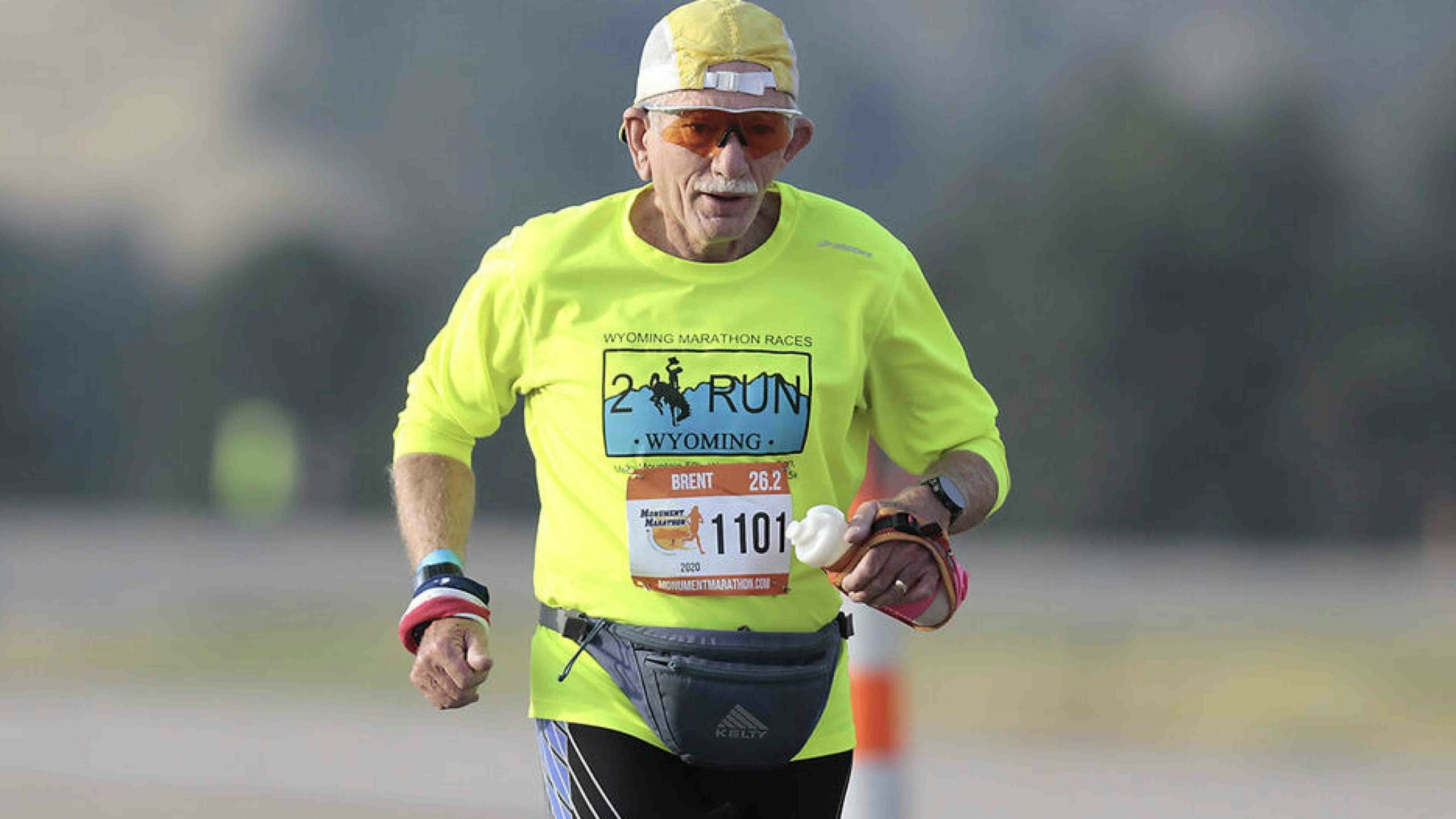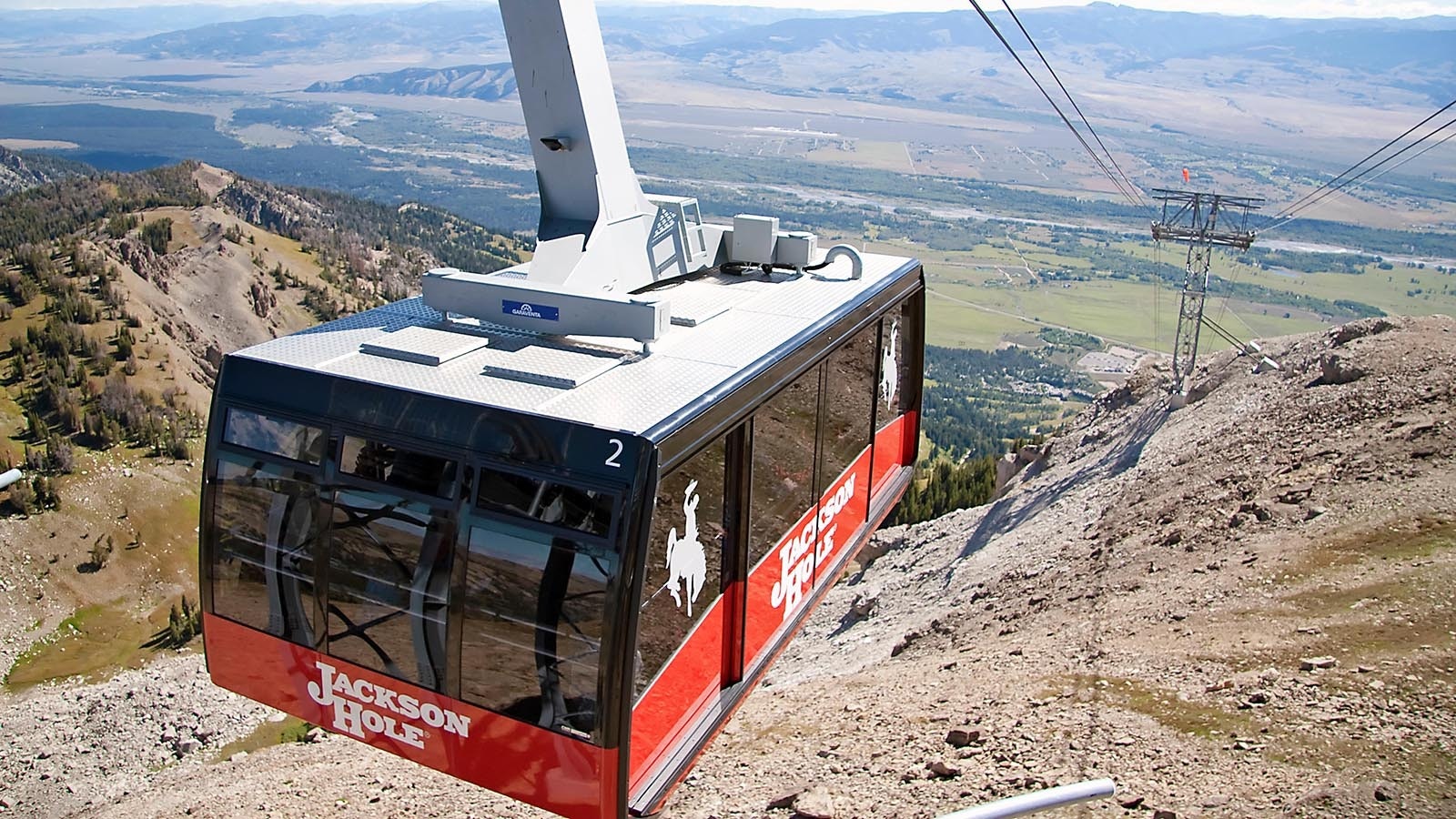This middle school world geography teacher from Cheyenne really knows his world geography.
Although he’s retired from teaching now, Brent Weigner has not only been to most of the countries in the world – he’s run marathons in nearly 200 of them.
“Two days after my birthday (next month), I’m running the Liberia marathon,” Weigner said. “And that will be a new world record. It will be country 192.”
Oh, and on that birthday, he’ll be 73 years old.
Weigner, who retired in 2010 after 35 years teaching seventh graders at McCormick Junior High School in Cheyenne, holds the record for being the first person in the world to run ultra marathons on every continent.
He also holds the world record for being the first runner to complete a marathon in 186 countries. That’s according to the Country Marathon Club, a club for runners who share a passion for travel and for running marathons in countries around the world.
But Weigner clarified that there are several different ways to count the number of countries there actually are in the world.
“With the Globetrotters (a travel club for international travelers), I’m at 192 countries,” Weigner said. “And with the Country Marathon Club, I’m at 187.”
So far, Weigner has competed in 373 marathons – including 73 ultramarathons, which is any foot race longer than the traditional marathon length of 26 miles, 385 yards.
Love For Travel, Love For Running
An active child, Weigner said he loved to run because it meant he wasn’t sitting still.
“I can’t remember not running as a little kid,” he said. “I remember playing tag and kick the can and ditch ‘em and anything to move.”
Weigner said he ran his first marathon in Whitewater, Wisconsin, as a college student in 1968.
“I had set the school record in 800 meters,” he said. “And I didn’t know anything about long races, but I thought I would just go down and win it.”
Weigner didn’t win – far from it, although he was doing pretty well the first 20 miles.
“For 20 miles I was in the hunt,” Weigner said. “I was in the lead pack, and had run through 20 miles in under two hours, basically, marathon pace, and then the wheels fell off.”
Because Weigner had never trained for a marathon, he didn’t know anything about how to prepare his body for that kind of endurance exercise.
“I sat down in a ditch, and everything in my body started cramping,” he said. “So I’m actually shuffling in the last 10 kilometers. It took me almost as long as it took me to do the first 20 miles – to do the last took me an hour and 53 minutes.”
But that experience didn’t deter him. Weigner said he signed up for his next race shortly after that, and soon began using marathons as a way to fulfill his other passion – travel.
“When I graduated from high school in 67, I basically sold everything I owned so I could do a study abroad with my German club,” he said, “and lived in Germany and Austria for a couple of months. And so that piqued my interest in traveling.”

From Running Races To Running Races
Weigner has used his experience running marathons to organize events all over the world – including at the Vatican and in several African nations.
“When I organize these events around the world, I try to find a local running club or somebody, especially in Third World countries, who can help me with the customs and the culture,” he said, “and make sure I don’t get crosswise with the gangs or the police.”
Weigner is also credited for organizing the only marathon held at the South Pole in 2002, when he was 50 years old.
“It took me two years, and it hasn’t happened since,” he said. “The year we did the marathon there, I was actually sponsored by the state of Wyoming.”
Upon his return, Weigner said Channel 9 News out of Denver drove up to Cheyenne to interview him and some of the high school cross-country athletes that he coached.
“They asked one of the kids, Sean Wilde, ‘What do you think about your teacher running to the South Pole?’ And, I quote, Sean says, ‘I think it’s remarkable for a man his age.’”
“He is now the head cross country coach at Cheyenne Central High School,” Weigner said.

Teaching And Running
As a teacher and coach, Weigner has instilled a love for running in generations of his students.
“I have such a passion for running, you know, and not just as an individual, my own running,” he said, “but for the kids I’ve coached, and have seen them go on to do great things.”
As a teacher, Weigner has racked up many honors.
“When I retired, I was the highest paid teacher in the school district,” he said. “Besides being paid for (having a) PhD, I was the first nationally board certified social studies teacher in the state.”
One of Weigner’s proudest accomplishments is founding the girls’ cross-country program at Cheyenne Central High School and at McCormick Junior High School.
And because his alma mater in Greeley, Colorado, didn’t have an NCAA-recognized cross country program when he attended school there in 1971, he made that happen as well.
“And so I get credit for founding the men’s varsity cross country team at University of Northern Colorado,” Weigner said.
And because of his own extensive travels, Weigner was able to bring that experience into the classroom.
“I told (my students) that world geography was the mother of all sciences,” he said. “Everything happens in a place, in a location, and unless it’s in a vacuum, that location is colored by the culture, by the politics, by the geographical features, you know – water, rain, forests, deserts, mountains, and so on.”
Weigner told his students that the world was his classroom.
“I’d share stories with them about my adventures all around the world,” he said. “Every summer I took students overseas. New Zealand, Australia, Europe, Washington, DC, of course. My favorite trip was, we took a bunch of kids to the former Soviet Union.”

Overcoming Obstacles
Not only is Weigner — or Weendog, as he sometimes calls himself in social media posts — about to celebrate his 73rd birthday, he continues to race despite the fact that a tumor the size of his fist was removed from the left side of his brain two years ago.
“I came back from some overseas trip,” he said. “And my memory was going down the drain. My wife, Sue, thought I had Alzheimer’s or dementia, so I went to see my doctor.”
His doctor, who was a former student and athlete that Weigner had coached, ordered an MRI that identified the benign meningioma.
“I asked him before I went under the knife, I said, ‘When would I be able to run a marathon again?’ And he said, ‘Oh, if everything goes well, in two months.’ And so, I basically had not run for two months, and I got the go-ahead three days before I left for Yemen for a marathon on the island of Socotra, and so I ran that marathon and then did a 10k.”

Support And Inspiration
Weigner said that smart financial planning and investments in rental properties have allowed him the financial freedom to travel the world running and organizing marathons. And he credits his wife, Sue Hume, for being his constant support at home and on the road.
“Not so much anymore, but back in the day, one year she let me do 38 international marathons,” he said. She has also assisted with many of the runs that Weigner has organized around the world.
Weigner said his experiences with different cultures around the world has influenced his outlook, and strengthened his faith.
“I’ve done marathons in, like, 33 different African countries,” he said. “And one year, I’m surrounded by maybe two dozen black kids, and they’re all touching me and they want to know what my ‘Juju’ is. What my special power is. This one kid is in my face and his hand’s just going back and forth. ‘White man, this is not possible. My father is 40 years old. He’s an old man and he’s dying. How do you do this?’ And I just point up to the sky.”
Weigner pointed out that no one really knows how they might influence or inspire someone else.
“A lot of people don’t give a crap about your times in races,” he said, “and they won’t remember anything you’ve done. But what they will remember is if you’ve been kind, and said something that helped them feel good about themselves. They’ll remember that.”





